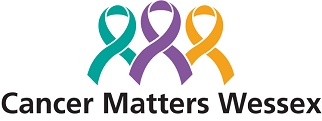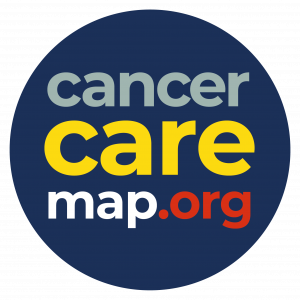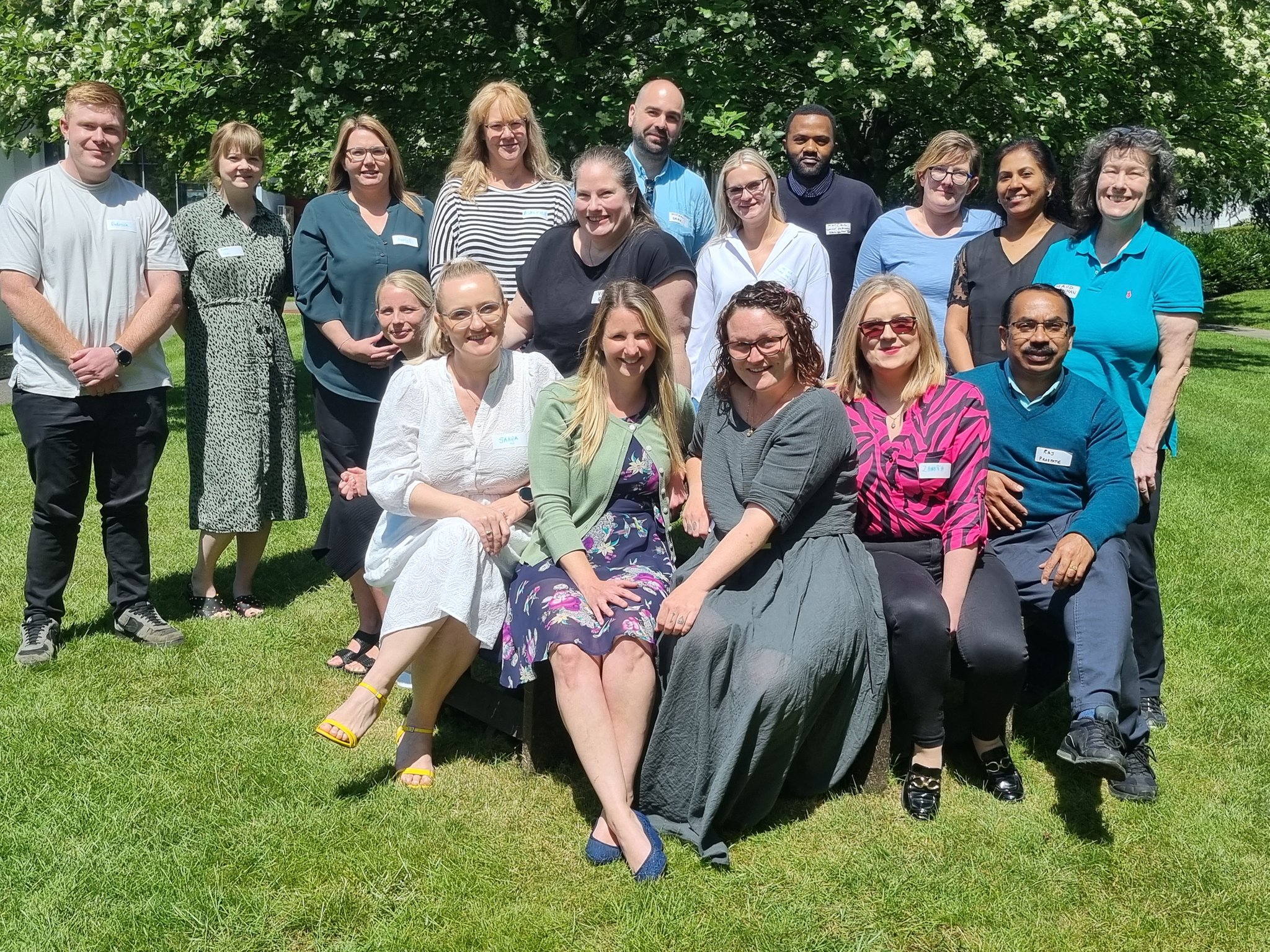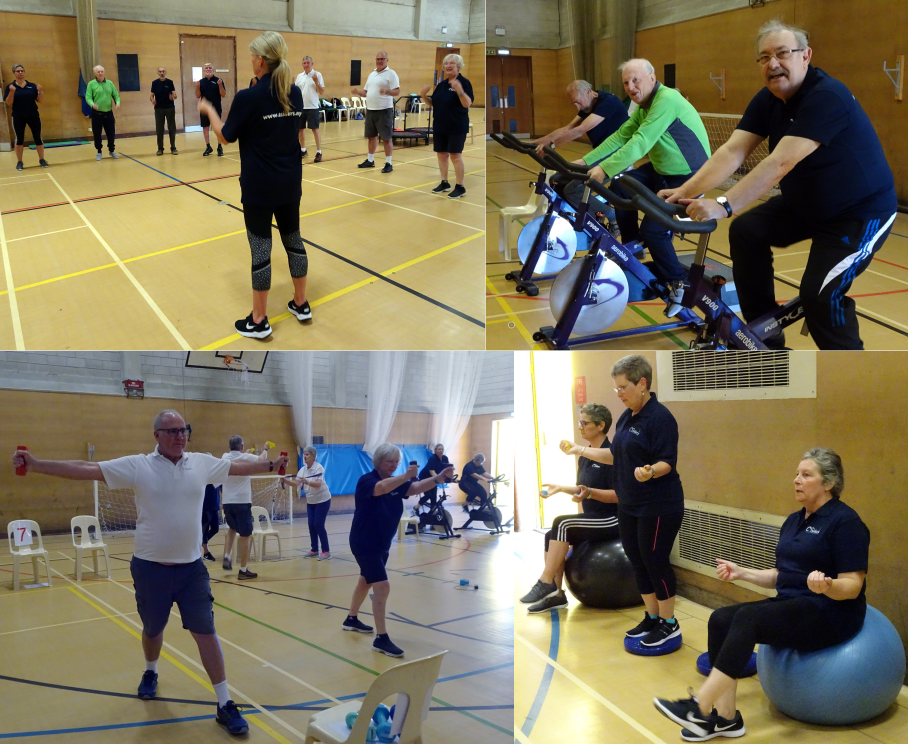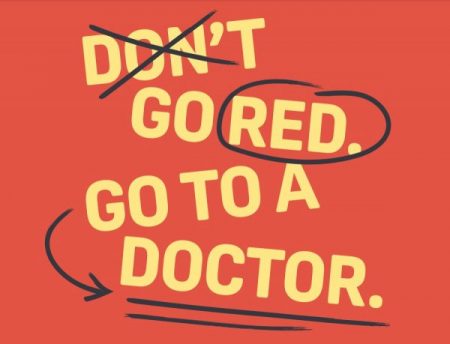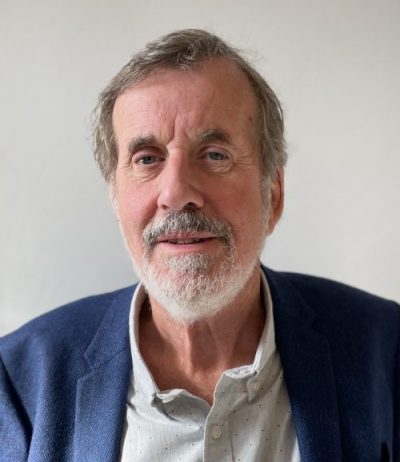Hair Studio
If you are having chemotherapy, radiotherapy or other cancer treatments, you may lose your hair or find that it becomes thinner. These changes are almost always temporary.
In June last year the Natural Image Hair Studio was first launched in Southampton.
Stylist Tracy Blackwell offers personal styling appointments for wigs and hair pieces to support those with hair loss and other needs.
The studio stocks wigs and hair pieces from Natural Image, a brand which specialises in wigs for those experiencing hair loss through treatments like chemotherapy. They also stock Gabor and Raquel Welch wigs and toppers.
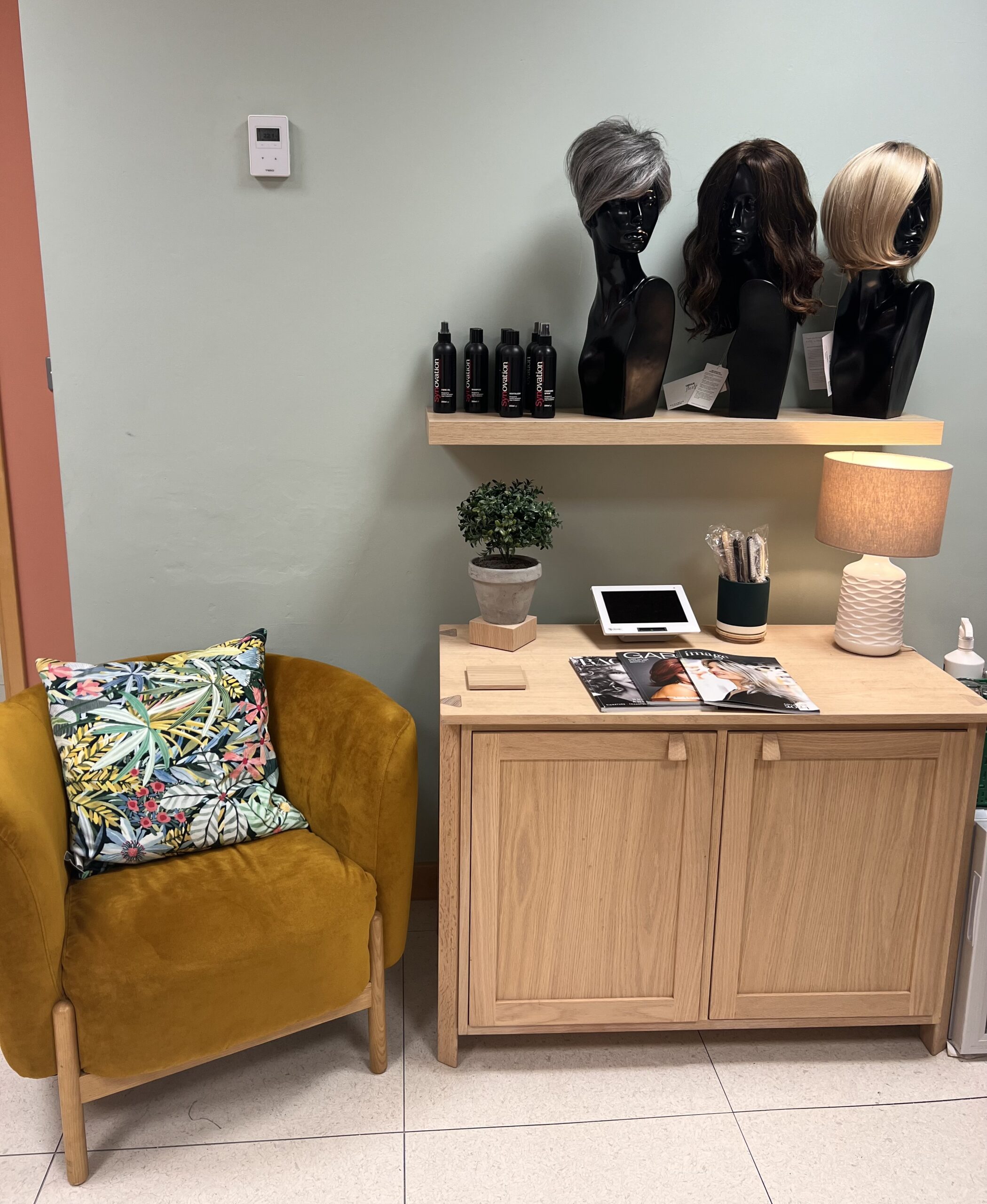
The Wig Room
How it Started
Tracy has been instrumental in setting up the new service after she experienced the emotional effect of hair loss through her mum, who received treatment for breast cancer.
“My lovely mum went through such a tough time during treatment for her cancer and losing her hair was a very difficult time for her,” says Tracy.
“I felt this project was such an exciting opportunity to give something back and to help others in a very positive way. I felt I was with my mum on her wig journey, so well equipped to understand the needs of clients seeking this service and jumped at the chance to be part of this adventure.”
As well as becoming the branch’s hair specialist, Tracy has also used her interior design skills to create a space for a private and discreet Hair Studio within the store.

Appointment Only
One-to-one appointments in the Hair Studio are in a private space off the shop floor. The service is free, but you should call to book an appointment in advance prior to your visit. The salon is open 6 days a week with some late nights too, so plenty of choice if you’re working and need to visit after you finish work.
The Hair Studio has a good assortment of wigs and hair pieces to buy on the day. You will have plenty of time to try on the hair pieces if you wish, or you can browse the catalogue with the stylist to see if there is anything that catches your eye. Nothing is rushed, and you can bring a friend for support and encouragement.
John Lewis accepts NHS Vouchers for patients with medical and long-term medical conditions.
Feedback
To date Tracy has carried out more than 100 appointments with lots of fantastic feedback from customers who are now calling the studio ‘The little secret room’.
“You have completely shifted how I felt about chemo and hair loss, and I’ve found myself with a spring in my step this evening for the first time in a while’.”
“The service you provide is a real positive to someone who has cancer. Losing my hair was one of the most distressing things of the chemotherapy treatment & you treated me with care & compassion. My wig looks fantastic on me & I have already accessorised it for going out”.
“Tracy was kind, considerate, professional, knowledgeable, and friendly from the outset. She made my journey into the unknown more bearable, with her expertise and friendly nature. Cancer is scary and it certainly helps to have support and guidance where needed as it becomes so overwhelming. Tracy did that, and more. Thank you, Tracy. You are an absolute gem. Xxxx”
“What an amazing experience, this makes such a difference to have this service, how you feel after being here is ‘I’m going to cope and look great!’”
For more information or to book an appointment please contact Tracy by phone on 07764 676788, or by email at tracy.blackwell@johnlewis.co.uk
You can read more about hair loss as a side effect of cancer treatment on the Macmillan Cancer Support website
Cancer Care Map
Support can be a lifeline for people affected by cancer. There is a wide range of services available in the Wessex area and further afield.
Cancer Care Map is a simple, free, online resource to help you find cancer support services near you.
To find support groups and services in your local area, click on the Cancer Care Map logo and enter your postcode in the search box. You can enter key words to search for more specific services.
